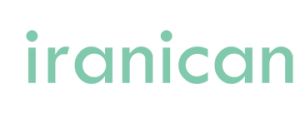Dear Iranian American,
What do you think of Obama’s speech at Cairo University ?
We kindly ask that you call the White House comment line and leave your comments, as well as on our iranican.com blog to let us know what you think.
Today, President Obama made another unprecedented move not only for the Muslim world, but particularly for Iranians. Less than 3 months after his Nowruz Greeting to Iranians, Obama became the first acting President to publicly acknowledge US’s role in the 1953 Coup against the democratically elected Prime Minister Mohammad Mossadeq and his government. Until Thursday, the most senior acting U.S. official to
express regret for the coup was Madeleine Albright, in 2000, when she was secretary of State. While noting the hostage crisis and the clash with US Troops, he said he does not want to “remain trapped in the past.” Obama also reaffirmed Iran’s right to having peaceful nuclear power and offered talks “without preconditions on the basis of mutual respect”
Action Requested (will take less than 5 min)
1. Call the White House today: 202-456-1111. Speak slowly to give the live person time to take notes
2. Submit your comments on http://www.whitehouse.gov/CONTACT/
3. Call the State department as well for the same feedback: 202-647-4000
Appreciate
1. Appreciate the acknowledgment of US role in the 1953 Coup.
2. Appreciate his vocalizing Iran’s right to sovereignty regarding peaceful nuclear power. If you oppose nuclear power in general, comment that countries should be treated on equal grounds regarding this issue.
3. Appreciate his willingness to talk without preconditions on the basis of mutual respect, and officially inviting Iran to this address at Cairo.
Ask/Tell the President
1.Tell the President that as Iranian Americans, we are willing to help our government bridge the gap between America and Iran. This will require him to appoint more Iranian Americans in key positions. Vali Nars, hired to advise the administration on US-Iran relations, is a great example.
2. Ask the President for a check-box for Iranian Americans on the 2010 Census.
Here’s the piece in Obama’s speech directed to Iran, For full transcript go here.
The third source of tension is our shared interest in the rights and responsibilities of nations on nuclear weapons.
This issue has been a source of tension between the United States and the Islamic Republic of Iran. For many years, Iran has defined itself in part by its opposition to my country, and there is in fact a tumultuous history between us. In the middle of the Cold War, the United States played a role in the overthrow of a democratically elected Iranian government. Since the Islamic Revolution, Iran has played a role in acts of hostage-taking and violence against U.S. troops and civilians. This history is well known. Rather than remain trapped in the past, I’ve made it clear to Iran’s leaders and people that my country is prepared to move forward. The question now is not what Iran is against, but rather what future it wants to build.
I recognize it will be hard to overcome decades of mistrust, but we will proceed with courage, rectitude, and resolve. There will be many issues to discuss between our two countries, and we are willing to move forward without preconditions on the basis of mutual respect. But it is clear to all concerned that when it comes to nuclear weapons, we have reached a decisive point. This is not simply about America’s interests. It’s about preventing a nuclear arms race in the Middle East that could lead this region and the world down a hugely dangerous path.
I understand those who protest that some countries have weapons that others do not. No single nation should pick and choose which nation holds nuclear weapons. And that’s why I strongly reaffirmed America’s commitment to seek a world in which no nations hold nuclear weapons. (Applause.) And any nation — including Iran — should have the right to access peaceful nuclear power if it complies with its responsibilities under the nuclear Non-Proliferation Treaty. That commitment is at the core of the treaty, and it must be kept for all who fully abide by it. And I’m hopeful that all countries in the region can share in this goal.
Most of the time we don’t say thank you when we should. While we may not necessarily agree with each statement the president makes, thanking on good things increases our capacity to criticize when bad things are happening. Organizing our efforts as a community will increase our political visibility. Please pass this message along to family and friends. Thank you for helping build a better tomorrow.
Iranican | on Facebook | on Twitter | on FriendFeed
Media for Generation Iranian American


2 comments